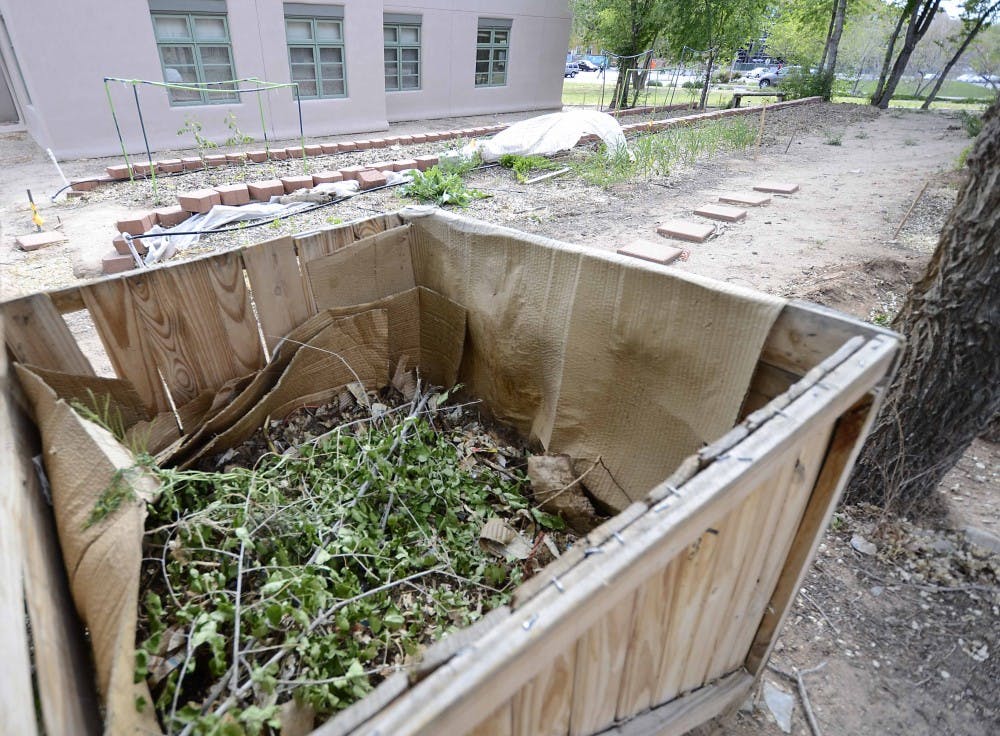Compost is an organic fertilizer that can easily be made at home. Its nutrients are helpful not only for crops and gardens, but also for the environment.
According to “The Rapid Composting Method” by the University of California, all you need to create compost in only two weeks are:
1. Green material. This can be fruit and vegetable wastes, old flowers, fresh garbage and grass and green clippings.
2. Dried material. Any natural dried vegetable matter including dried grass, fallen leaves and small woody materials.
3. Water. Or any other similar liquid that provides moisture.
4. A 1-by-1-by-1 yard container. This must be a covered container to retain the heat that the mixture creates.
Step 1: Mix equal proportions of green and dried material in the pile
This will make the compost work more effectively by having the perfect ratio of carbon and nitrogen. Make sure that everything for composting is smaller than 1 1/2 inches in size; otherwise, the process takes longer.
Step 2: Moisten the mixture with water
The compost works better if the moisture content of the materials in the pile is about 50 percent, according to the rapid composting article. This means that the mixture should be almost as damp as a squeezed sponge.
Step 3: Keep the mixture warm enough
Heat is a crucial element that can easily be preserved by closing the compost’s container. Microorganisms produce heat as they break down the material, and keeping the container warm ensures the material decomposes correctly and quickly. The temperature should be about 160 degrees Fahrenheit; otherwise, the process will either take longer or fail to work.
Get content from The Daily Lobo delivered to your inbox
Step 4: Turn the material in the pile once a day
For a faster and better compost, turn the pile every day. This action helps the mixture reach optimum temperatures and spreads the microbes that cause the decomposition. The more you turn the pile, the faster it composts.
After two or three weeks, the compost is ready. You know you can start digging it into your garden when the mix loses its heat, reduces its volume and becomes a brown, semi-homogeneous mixture. The compost provides nutrients including carbon, nitrogen and oxygen that help to grow better grass, plants and even organic crops.






